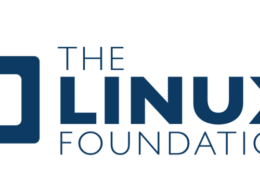In a brilliant display of leadership, Microsoft CEO Satya Nadella showcased his urgency and instinct by taking charge of the chaotic situation at OpenAI, the leading generative AI company. After hours of negotiations over the weekend, Nadella managed to strike a deal that brings Sam Altman, the ousted CEO of OpenAI, to head up a new subsidiary within Microsoft dedicated to AI innovation. This new group will also include Greg Brockman, co-founder of OpenAI, and other departing employees who supported Altman’s strategic vision.
From Microsoft’s perspective, this is a significant win as it brings Altman’s growth mindset into the realm of generative AI, the most exciting field in technology. Altman and Brockman represent the ambitious product-oriented side of OpenAI, which was valued at $80 to $90 billion during its recent funding round. Acquiring OpenAI outright would have cost Microsoft tens, if not hundreds, of billions of dollars. However, with this deal, Microsoft gains OpenAI’s key assets, its talented minds, and the possibility of accessing OpenAI’s models at a significant discount.
The stock market responded favorably to this news, with Microsoft’s shares rising by over 1 percent on Monday morning, pushing the company’s valuation to a record $2.78 trillion. But there is more to this story. Prior to this deal, OpenAI seemed poised to continue functioning as an independent company on a mission to develop safe Artificial General Intelligence (AGI). This would have resulted in a stable partnership with Microsoft, which already held a meaningful stake in OpenAI.
The Rise of OpenAI’s Employees
However, the situation changed dramatically on Monday morning. Reports indicate that the majority of remaining OpenAI employees have sent a letter to the company’s board, stating that they may resign unless Altman and Brockman are reinstated and the board resigns. If the remaining board members do step down, Altman and Brockman could return and lead OpenAI towards even more aggressive growth, unencumbered by a safety-focused board.
While this scenario could prove highly beneficial for Microsoft, given its significant investment in OpenAI, it may also introduce some tensions. OpenAI’s rapid growth in the field of generative AI could potentially conflict with Microsoft’s aspirations to be a leader in enterprise generative AI. However, some level of tension is not necessarily negative, and the existing partnership still provides Microsoft with ample access to technology and knowledge.
This partnership could significantly strengthen Microsoft’s position in the competition against Amazon AWS and Google, enabling the tech giant to provide powerful AI-infused cloud technology solutions to enterprise companies. Yet, the likelihood of Altman and Brockman returning to OpenAI remains uncertain, as the remaining board members have already expressed a willingness to let the company be destroyed to maintain their mission.
Unforeseen Developments and the Future
Another noteworthy development on Monday was that Ilya Sutskever, co-founder of OpenAI and a vocal advocate for establishing safeguards around the company’s large language model (LLM) technology, has also voiced his opposition to the OpenAI board. This could mean that Sutskever may lead the company’s safety mission within Microsoft or continue to champion it within OpenAI, should the board resign and employees choose to stay.
Prior to the events of the weekend, there were rumors that Nadella and others supported efforts to reinstate Altman as the CEO of OpenAI. These rumors suggested that hundreds of OpenAI employees were prepared to leave the company in support of Altman. However, the board ultimately chose Emmett Shear, former CEO of Twitch, as the interim CEO of OpenAI.
Nadella’s offer to Altman to join Microsoft allows Altman to pursue his mission with increased stability. Although details of the deal have not been disclosed, it is likely that Nadella provided a compelling incentive package to offset the risks Altman faced, such as potential legal implications of starting a new company independently. Nadella expressed his enthusiasm for Altman’s involvement in a new group dedicated to innovation, citing examples of successful founder-led entities within Microsoft like GitHub, Mojang Studios, and LinkedIn.
Renowned Nvidia research scientist and former OpenAI employee Jim Fan praised this move as a masterstroke in strategic maneuvering. Microsoft intends to continue its collaboration with OpenAI, launching planned features for its products and partners while fostering an entirely new AI research team under its umbrella. This move will grant Microsoft easier access to the power of AI for its products, including Windows and Teams.
Nadella’s post expresses his anticipation for providing the necessary resources to ensure the success of this partnership. However, Microsoft must ensure stability within OpenAI soon to prevent frustration and distractions among the talented employees, who may seek opportunities elsewhere.









